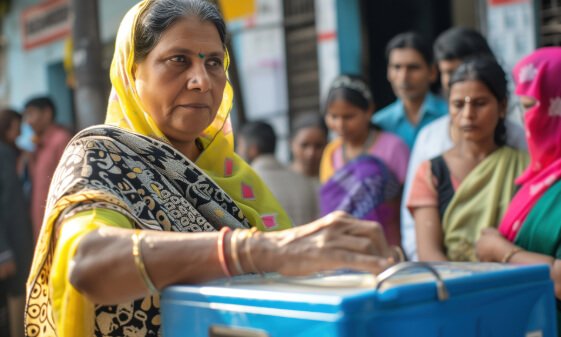Is Election Commission Turning Voter Verification in Bihar into a Citizenship Test?
The EC Is Meant to Conduct Elections, Not Scrutinise Citizenship
June 26, 2025
Ahead of state elections in Bihar, the Election Commission (EC) has said it will make voters submit proof of their own and their parents’ birth details, including citizenship documents, as part of a special intensive revision of the electoral roll. The move imposes a level of bureaucratic scrutiny that is not only difficult to meet for many citizens, but also raises questions about the intention and timing of such an exercise in a politically sensitive state.
As part of this process, booth-level officers are visiting households to verify voter records, as reported by Hindustan Times. Voters born before 1987 must submit a self-attested form with one document proving their birth details. Those born between 1987 and 2004 must also submit documents proving their parents’ birth details. Voters born after 2004 are required to submit both their own and their parents’ documents. If a parent is foreign-born, passport and visa details must be shared.
This is being justified by the Commission as a response to concerns over migration and the presence of undocumented foreigners on voter rolls – without clear evidence. Neither the EC nor the central government has offered public data that shows large-scale voting by non-citizens in Bihar.
At first glance, the stated goal of ensuring a clean and accurate electoral roll seems reasonable. In practice, however, the documentation demands are far beyond the reach of many citizens.
Rural families, especially from marginalised castes and economically vulnerable communities, often lack such historical records. Landless labourers, displaced families and migrant workers are the most likely to be affected, as they may not have retained birth certificates or land-related documents across generations. By making access to voting dependent on bureaucratic proofs of ancestry, the process introduces a layer of exclusion that punishes poverty and dislocation.
The measure reflects the anxieties that surrounded the National Register of Citizens (NRC) in Assam. There too, the burden of proof rested on ordinary citizens, and the results were disastrous for many. People with lifelong roots in the state were left out due to documentation gaps. The EC’s decision repeats the same flawed logic. It assumes that state-issued identity documents are universally available and that bureaucratic records are infallible. In a country with patchy record-keeping and frequent displacement due to poverty, disaster or violence, that assumption is detached from reality.
Such a move also changes the relationship between the state and its citizens. Voting is supposed to be a basic right in a democracy, not a privilege to be earned through paperwork.
By inserting suspicion into the act of being counted as a citizen, the state casts voters as potential outsiders. The requirement that a voter prove the birth and citizenship of a parent creates a genealogical threshold that does not fit modern life. People born to single mothers, those with absent or deceased parents, or children raised outside the formal care of birth parents are left scrambling for documents they may never have had.
There is also a risk of selective enforcement. When bureaucrats are asked to verify voter records through house visits, the process often becomes inconsistent. Discretion lies with local officials who may be influenced by biases, political pressure or poor training.
In Bihar’s complex caste and political environment, where booth-level officials may share social or political affiliations, the process can easily be twisted to target certain groups. The Election Commission has not explained how it will safeguard against this possibility.
Further, doing this in the months leading up to an election gives little time for resolution of disputes or errors. If a citizen’s name is struck off the roll, what remedy is realistically available before voting day?
The opposition has alleged this is a pretext to remove certain voters from the list, a concern that cannot be dismissed outright. In a democracy, the fairness of laws and the public perception that processes are just and neutral are both crucial.
The EC has said that similar reviews will be carried out in other states like Assam, Kerala and West Bengal. This gives the impression of a national rollout of a policy that fundamentally alters how voter eligibility is determined. Before such a step is taken across India, there must be a public debate on what kind of proof of citizenship is reasonable in a country where state capacity varies and inequality is deep.
You have just read a News Briefing by Newsreel Asia, written to cut through the noise and present a single story for the day that matters to you. Certain briefings, based on media reports, seek to keep readers informed about events across India, others offer a perspective rooted in humanitarian concerns and some provide our own exclusive reporting. We encourage you to read the News Briefing each day. Our objective is to help you become not just an informed citizen, but an engaged and responsible one.

